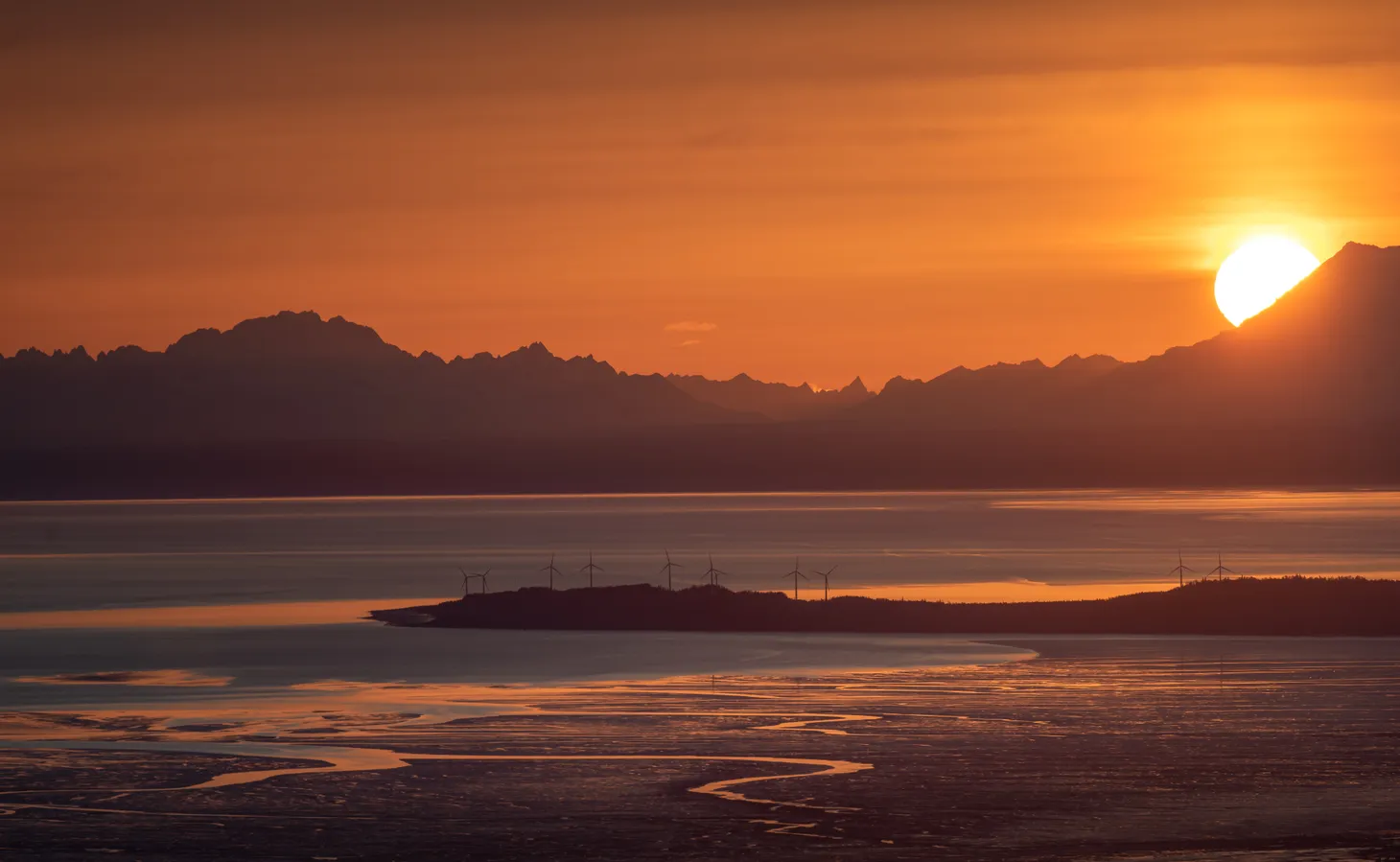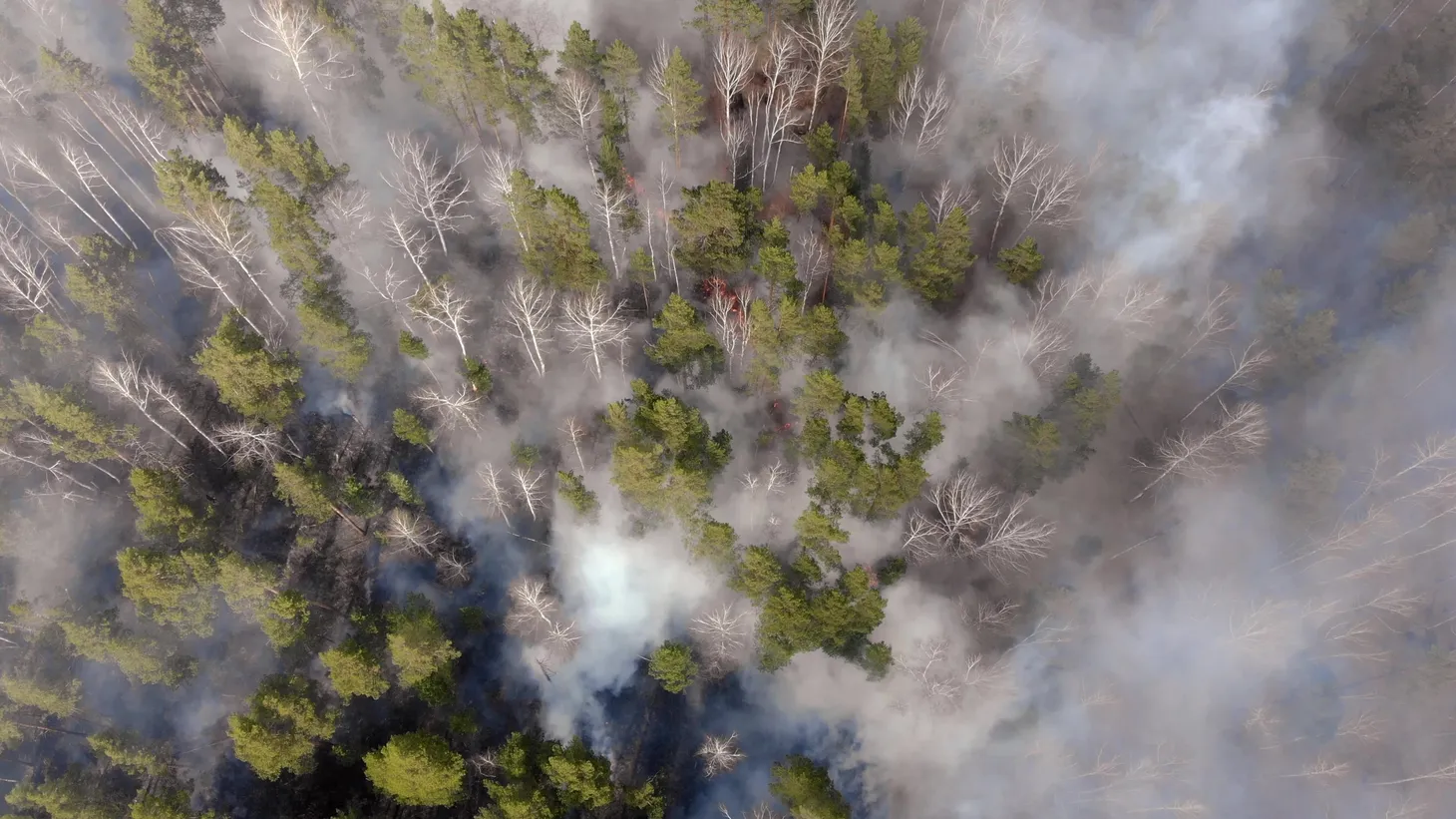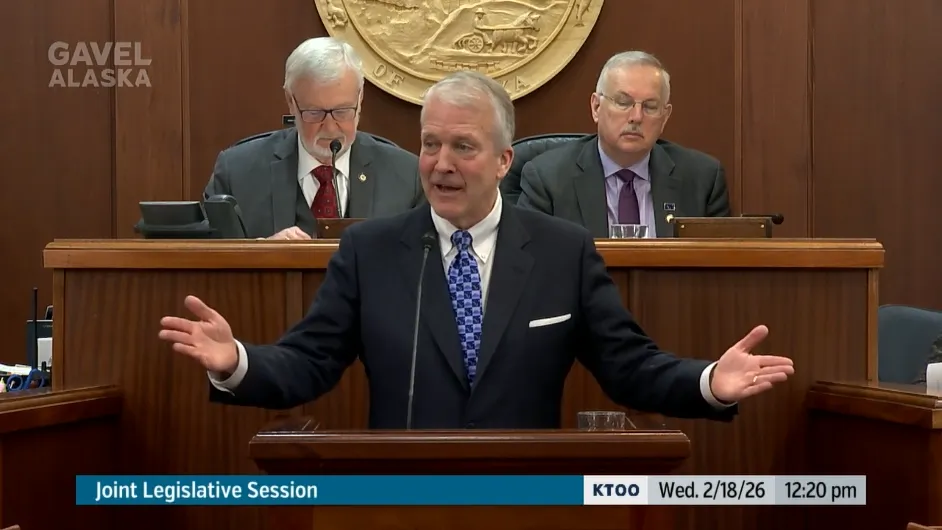Dunleavy's special session menu: Reheated leftovers
Legislative leadership isn't even making a show of trying to stomach the governor's plans.

It's Wednesday, Alaska.
In this edition: The special session, which is definitely the governor's sincere effort to force through a bunch of stale "reforms" on public education and not at all a cynical bid to preserve his landmark veto of public school funding, is set to start this weekend. Let's break down what's on the ostensibly sincere agenda for the special session, why it's not going anywhere and why legislative leadership isn't even interested in going through the motions.
Current mood:
Dunleavy's special session menu: Reheated leftovers

Alaska Gov. Mike Dunleavy's surprise special session this weekend is definitely not just about ensuring his slate of deeply unpopular vetoes – including the first-ever cut to base public school funding – stand, which is why the agenda he released on Monday is full of stale proposals that legislators have already, by and large, turned down. There's little indication that anyone on any side is especially convinced that anything substantial will happen on education policy at this hastily called special session, which just happened to overlap with legislators' commitments, which include one legislator's deployment with the Alaska Army National Guard.
Legislative leadership isn't even going through the motions of pretending to take the governor's demands seriously, and has already outlined a plan to meet, take up two specific veto votes and adjourn.
But just for the sake of it, let's unpack the agenda put out by the lame-duck Republican on Monday. It includes a slate of proposals that would entrench the two-tier education system that has been a central piece of Dunleavy's agenda. Those policies include his much-wanted expansion of public charter schools – programs that typically benefit wealthier, less diverse families – a wild west open enrollment system and a corporate tax credit program for education. He's also calling for temporary payments – rather than higher salaries or a long-wanted pension program – to keep teachers around.
“This is an opportunity to address Alaska’s performance issues and funding issues in K-12 education well into the future. By addressing this now, school districts, students, parents, teachers, and policymakers will have certainty and will not have to debate this issue during the regular session that begins in January,” the governor said in a prepared statement accompanying the agenda.
The agenda, however, is chock-full of ideas that legislators have rejected in some form or another throughout Dunleavy's time in office, and which have seen dwindling support as legislators caught onto what his call for "school choice" really entails. Critics (myself included) argue that Dunleavy's policies, which are pitched under a banner of empowering families, funnel resources toward the small group of families with the means – wealth or a traditional stay-at-home parent – to meet the commitments needed for the programs. They argue that the focus should be on those programs because of their purported success (which others argue largely comes from the fact that wealthier students tend to do better than non-wealthy students), while leaving children in neighborhood schools to cope with dwindling resources and ballooning class sizes.
In return, he's suggested openness to restoring the $50 million he vetoed from the state's baseline education funding – an amount that legislators increased this year after nearly a decade of stagnation, which he also vetoed and was successfully overridden on. His veto translates to a minimum of a $200 cut in funding for each and every student in Alaska, but equates to a far larger cut for students who need extra help or who live in high-cost communities due to adjustment factors in the state's funding formula.
Oh, and he's also wanting legislators to give his proposal to create a Department of Agriculture – which doesn't include a plan to properly staff or adequately fund it – another shot. Legislators voted down an executive order trying to create the department earlier this year, with many arguing that it was a half-baked idea that appeared to be creating cushy jobs for political allies.
The timing of the special session has also been suspect because it overlapped with planned absences, including Anchorage Democratic Sen. Forrest Dunbar's deployment with the Alaska Army National Guard (whose announcement that he would be able to make it after all, sparked discussions that Dunelavy might call off the special session altogether). Dunleavy's claim that the session was about more than upholding his vetoes by forcing the vote when not everyone could make it wasn't helped when it was revealed he had asked friendly Republicans to boycott the first five days of the legislative session – the window that vetoes have to be taken up – to help his vetoes stand.
Some Republicans have confirmed that they plan to follow the orders, but it doesn't sound like there will be much session to attend beyond Saturday.
Legislative leadership, which has been frustrated by the entire session and its timing, said they don't plan to pay the proposals any mind and will, instead, take up two veto overrides and adjourn.
The first veto override would be the $50 million from the state budget for K-12 education. This would restore full funding for the state's base student allocation, which legislators officially raised this year. Because the increase was essentially making the existing one-time funding levels permanent, Dunleavy's veto amounted to a reduction in year-to-year funding for schools.
The second override would target the governor's veto of a measure seeking to empower the state auditor to get to the bottom of the Dunleavy administration's suspicious secrecy over the handling of oil and gas taxes. Under Dunleavy, the state has seen a precipitous fall-off in oil tax settlement payments, which one former state official claims is because the state took a decidedly pro-industry interpretation of state oil tax laws at the expense of hundreds of millions of dollars to the state. Revenue Commissioner Adam Crum, who appears to have played a key role in whatever took place, announced this week that he's resigning.

Leadership really has had it with the governor and went on to blast any legislators planning on skipping out.
“This special session was called under circumstances that raise serious concerns, not only about its timing but also its clear aim to complicate legislative participation," said Senate President Gary Stevens, R-Kodiak, in a prepared statement. "Nevertheless, I urge every lawmaker not formally excused to be present in Juneau to fulfill our constitutional duty. These override votes are not just symbolic. They are about preparing Alaska’s students, restoring public trust in how we manage billions in state revenues, and maintaining the Legislature’s role as a co-equal branch of government. We owe it to our constituents and the future of this state to show up and do our jobs.”
Legislators instituted the increase to baseline education funding on a 46 vote, overriding the governor's veto of the underlying legislation. Dunleavy followed it up by vetoing the funding for the increase out of the operating budget. Overriding that veto will require 45 votes.
The oil tax transparency measure is part of a bill and will require 40 votes to override the governor's veto. It passed with a combined vote of 49-10.
“Alaskans expect us to lead, not walk away from our responsibilities," House Speaker Bryce Edgmon said in a statement. "This special session is not about partisanship, but about standing up for our students and preserving the checks and balances that keep government accountable. Every elected state lawmaker needs to uphold their constitutional duty, come to Juneau, and vote their conscience.”
Stay tuned.
The Alaska Memo Newsletter
Join the newsletter to receive the latest updates in your inbox.





